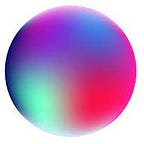ESSAYS
Hello…Consciousness?
Why the biggest question is overrated
As Sam Harris once put it, humanity’s deepest desire is to “look for what’s looking”. Over the course of history, we’ve called it awareness. We’ve called it the self. We’ve called it the soul. But even across the vast arcs of history, its precise nature has always managed to wriggle out of our grasp.
What is…this? What is the feeling of life?
In my mental tier list of philosophical questions, the question of consciousness falls into the “oh no…here we go again” category. As it is, I’d even say it’s pointless.
For one, most consciousness questions are supremely vague, making it unclear what a satisfying answer would even look like. Are we looking for an algorithm? A religion? Some coordinate in the brain? Humanity’s most intellectually gifted thinkers have formulated thousands of apparent solutions to the problem of consciousness. Without any legitimate way of testing their theories, how do we know we haven’t already discovered the solution?
And even if we managed to solve consciousness — what then? If we somehow landed on an equation that could perfect model experience, would we not immediately question why the numbers and the variables are they way they are? Or how the intangible qualia of sight, taste, and hearing could possibly spring from an inert flab of white brain matter? There will always be another axiom to question. It’s turtles all the way down.
My intention behind this article wasn’t to be cynical. It was to point out that we will keep talking past each other unless we resolve more fundamental issues. More important than consciousness itself is a consensus on how it can be measured. Else, our theories will forever remain shrouded in the mist of subjectivity, all equally correct and equally useless.
And if, in the middle of our inquiry, we conclude that consciousness has no measurable, physical manifestation in the world, perhaps we should reconsider if it’s even a scientific question.
Having read several articles on the subject, each of which seems to magically refute the one before it, I’m getting the same vibes I felt back in 2017 when everyone was arguing if that dress was blue or yellow, or if that sound they just heard was Laurel or Yanny.
In my eyes, though, it all points to a deeper bias. We tend to ignore that questions aren’t made equal: some lead to fruitful explorations, while others are really only good at dividing people by virtue of their ambiguity. It’s time we recognize that distinction.
Consciousness is important to think about. But our approach matters more.
